If you have ever compared SDR vs. HDR video quality, you already know that these two formats differ greatly. SDR (Standard Dynamic Range) is limited in brightness, contrast, and color depth, while HDR (High Dynamic Range) offers cinematic visuals, deeper shadows, and richer tones.
However, things become difficult when you already have SDR content and want to enjoy that HDR brilliance without shooting everything again. In such cases, SDR to HDR conversion tools come in handy. Whether you are a creator wanting better visuals or just someone who wants to upscale old footage, check out the 9 powerful tools from this Uniconverter guide and effortlessly transfer SDR videos into stunning GDR content.
In this article
Part 1. HDR & SDR: Definition & Comparison
Before discussing different methods to convert SDR into HDR media files, it is essential to understand what these two signals mean and why filmmakers prefer HDR for modern displays and content creation.
Standard Dynamic Range: SDR refers to the traditional format used for decades in TVs, monitors, and content. It supports limited brightness and color range, which is typically capped at 100 nits brightness and 8-bit color.
High Dynamic Range: HDR is designed for modern liquid retina displays where users demand deeper contrast, brighter highlights, darker shadows, and a wider color gamut.
Here’s a quick comparison between these signals, depicting which is better for you:
|
Feature |
SDR (Standard Dynamic Range) |
HDR (High Dynamic Range) |
|
Brightness |
Up to 100 nits |
Up to 1000-4000+ nits |
|
Color Depth |
8-bit (16.7 million colors) |
10-bit or 12-bit (1+ billion colors) |
|
Color Gamut |
Rec. 709 (limited color range) |
Rec. 2020, DCI-P3 (wider and richer color range) |
|
Contrast Ratio |
Lower contrast |
High contrast with better detail in dark/light areas |
|
Visual Experience |
Flat or duller visuals |
Lifelike, immersive, more cinematic |
|
Display Compatibility |
Compatible with all traditional displays |
Requires HDR-compatible display for full effect |
Part 2: SDR to HDR: Solving Compatibility & Visual Quality Issues
As a content creator or a filmmaker, you will need to understand that converting SDR to HDR is not just about chasing better visuals; rather, it has become necessary when it comes to cross-platform sharing or professional-grade content consistency. Here are a few reasons why you need to find ways and put efforts into converting SDR to HDR:
- Inconsistent Playback Across Platforms
Apple iPhone 15 Pro or later usually records videos in HLG format, which may appear washed when they are uploaded on TikTok or Instagram. Enhancing your media files from SDR to HDR ensures a more uniform viewing experience.
- Color Inconsistencies from Cameras
Devices like GoPro, Sony (S-Log2), or DJI (D-Log) capture footage in log formats intended for color grading. Converting the log files into HDR post-editing will help retain dynamic range while restoring color depth.
- Creative Control & Enhancement
The high dynamic range allows creators to fine-tune light and color, which has now become ideal for filmmakers, YouTubers, and digital storytellers who want to upload video or image files in the best possible format.
Part 3: Best Ways to Convert SDR to HDR on a PC
If you are working on a desktop or laptop and need to convert SDR to HDR, then you can rely on multiple advanced video editing software that often comes with AI capabilities. Here are a few highly recommended tools for SDR vs HDR conversion:
1.Wondershare UniConverter
![]()
UniConverter is a user-friendly tool for converting SDR to HDR in just a few clicks. This all-in-one conversion tool is powered by advanced encoding and AI-assisted enhancement, which supports different formats and gives users flexibility with resolution, bitrate, and color correction.
Easy to Use Versatile SDR to HDR Converter
Pros & Cons of Uniconverter
How to Use UniConverter for SDR to HDR Conversion?
Here is a step-by-step guide illustrating how easy and effective it is to convert an SDR file into HDR with just a few clicks:
Step 1
Begin by downloading and installing Wondershare UniConverter from its official website. Navigate to the "Converter" tool located in the "Quick Access" section on the homepage.
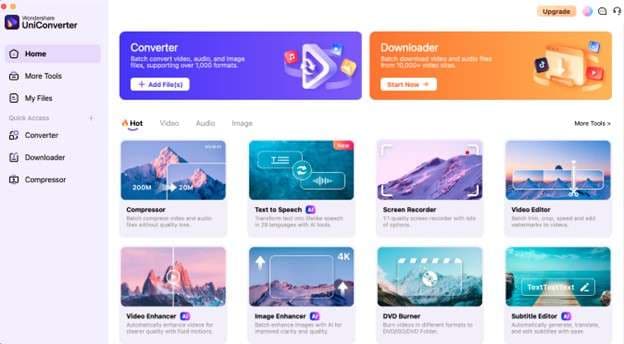
Step 2
Upload your HDR file(s) either by clicking "+Add File/Folder" or dragging and dropping them into the interface.Select your desired output format, then click the settings icon to adjust the color space.
![]()
Step 3
Choose the HDR options for optimal results, then click "Convert" and save your file once the process is complete.
![]()
Just by following these small steps, you can easily convert your SDR to HDR.
2. DaVinchi Resolve
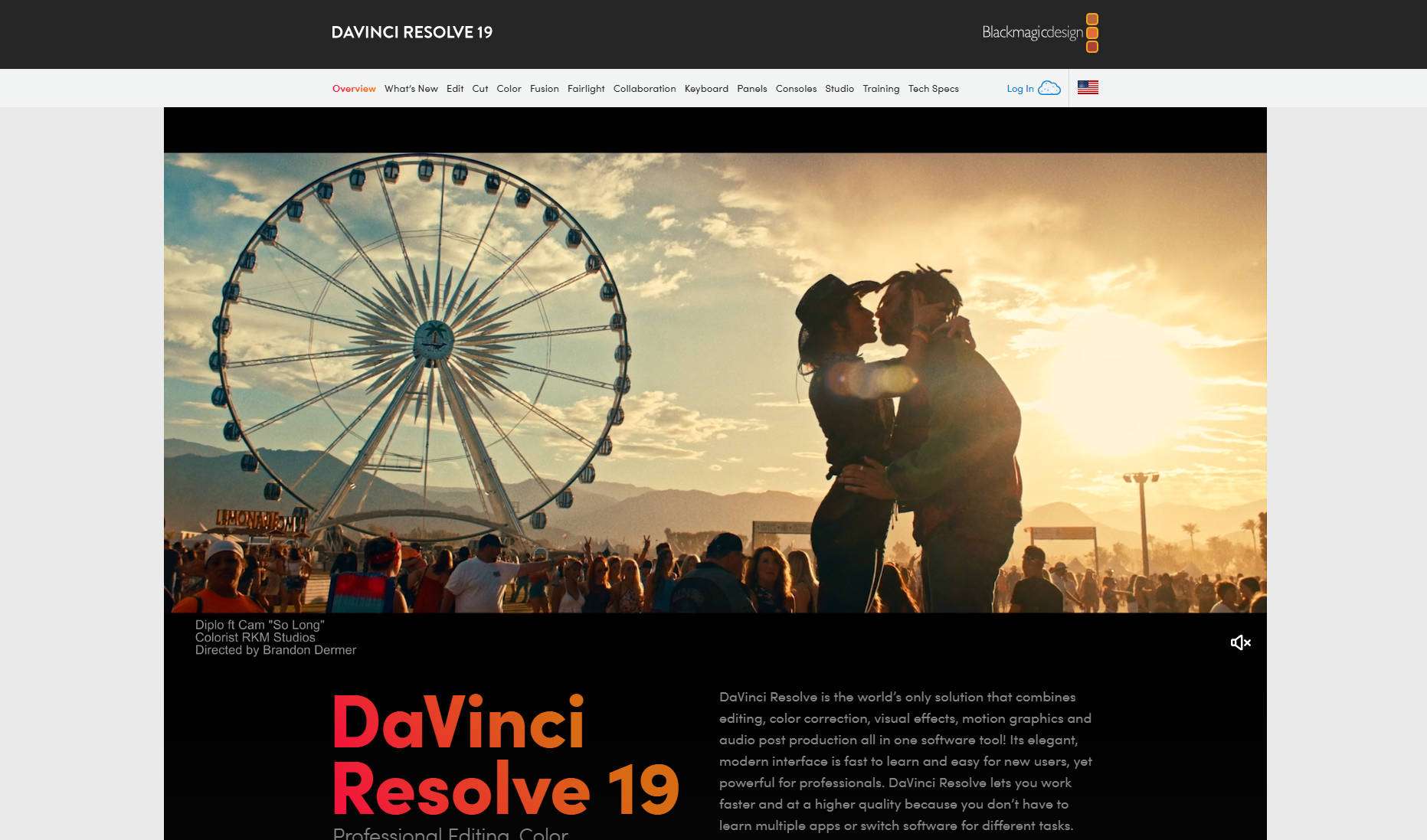
DaVinci Resolve is for creators who seek full control over their media. This advanced-level editing tool is free to use and offers deep color-grading features. It also includes manual HDR enhancement using custom tone maps and wide-gamut support.
Pros & Cons of DaVinchi Resolve
How to Use DaVinci Resolve to Convert SDR to HDR?
Check out the following steps in order to use DaVinci Resolve to convert the file from SDR to HDR:
Step 1
Open DaVinci Resolve in your system and start a new project and import your SDR video or image file and add it to the timeline that you see at the bottom.
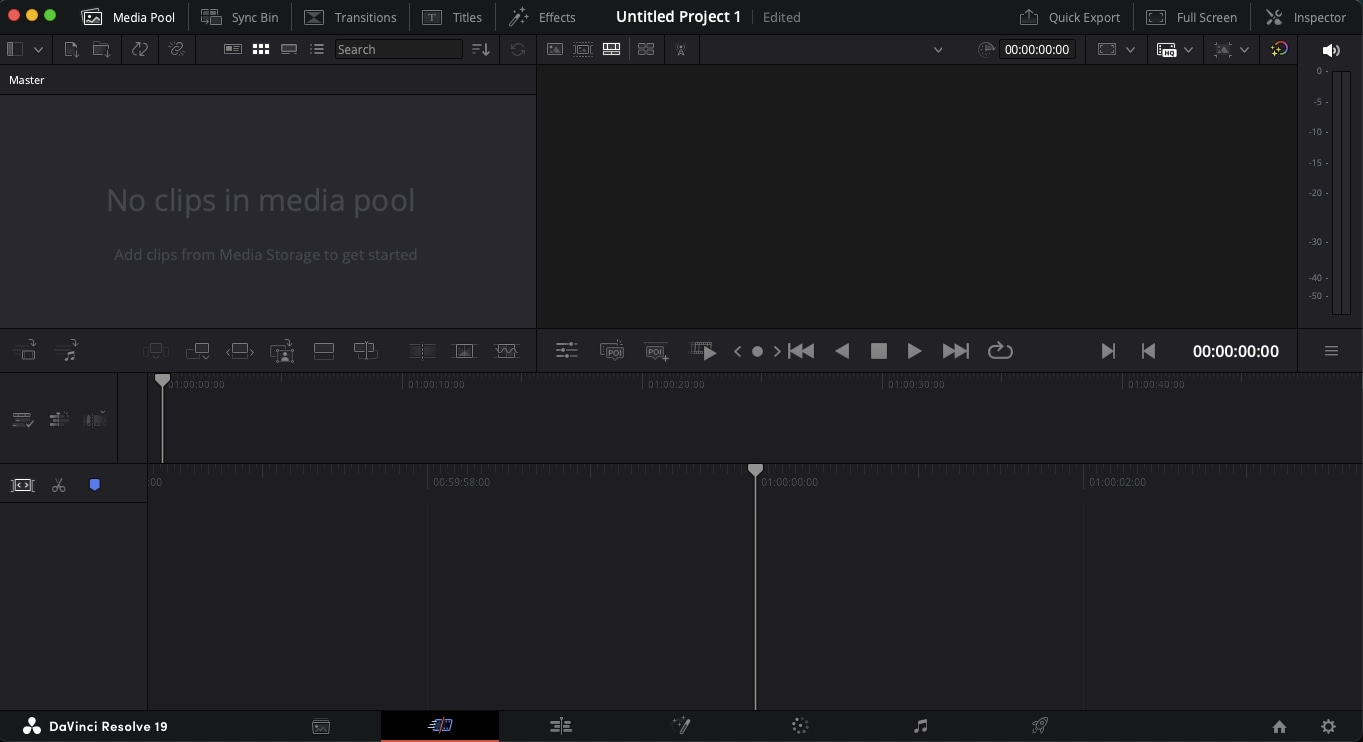
Step 2
Go to the “ColGrading Panel.”. In the “HDR Grading Panel,” you can adjust exposure, saturation, and color wheels for HDR tone mapping.
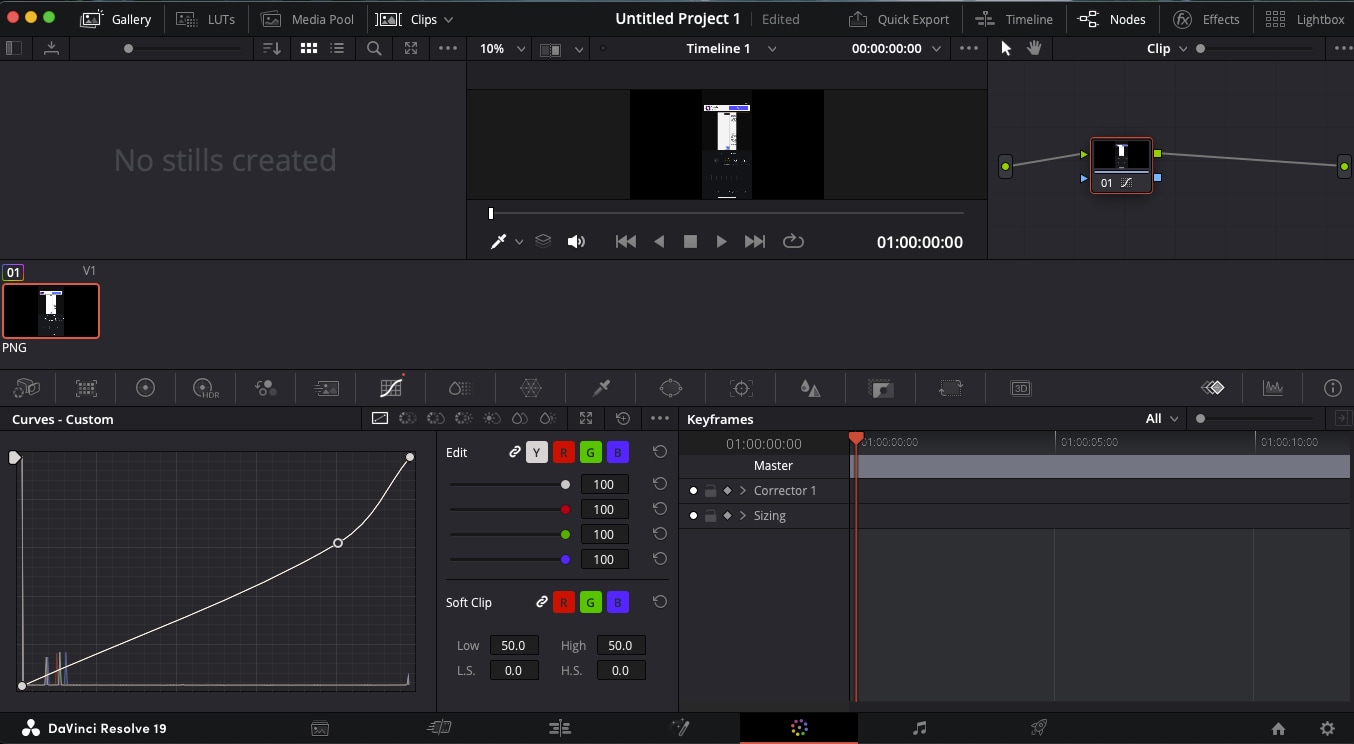
Step 3
You can further choose an HDR-compatible format like H.265 10-bit. Once done, easily export your video.
3.HitPaw Video Enhancer
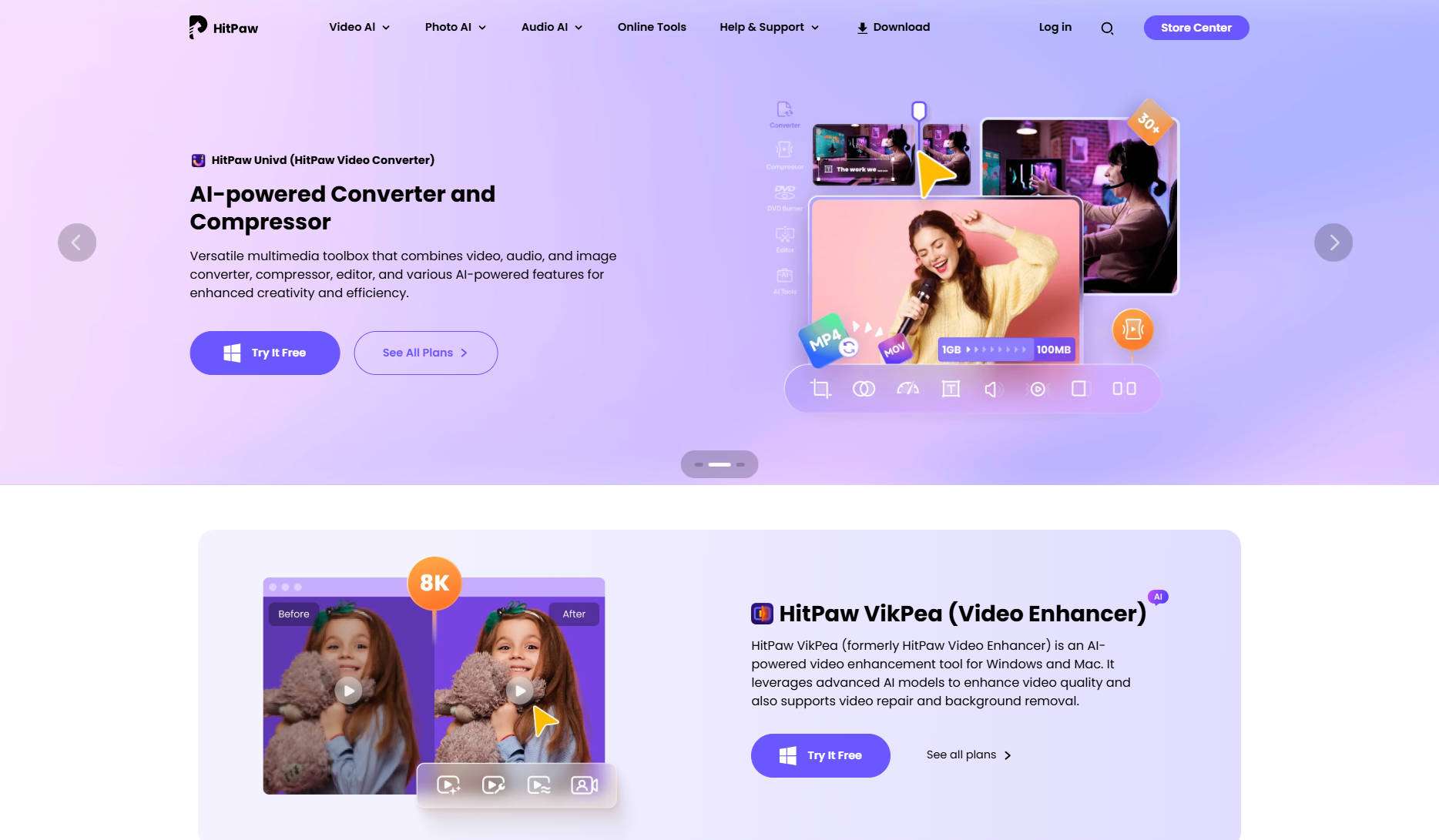
HitPaw Video Enhancer (formerly HitPaw VikPea) is designed to use AI models to convert SDR to HDR with minimal manual input. The conversion tool is designed for users who want fast, automated results without getting into too many technicalities that other tools like DaVinci Resolve offer.
Pros & Cons of HitPaw
Guide to Use HitPaw Video Enhancer to Convert SDR to HDR
Step 1
Begin by downloading HitPaw VikPea from its official website.After installation, import your video by selecting "Choose File" or simply dragging and dropping it. The software supports over 30 formats, such as MP4, AVI, MOV, MKV, and M4V.
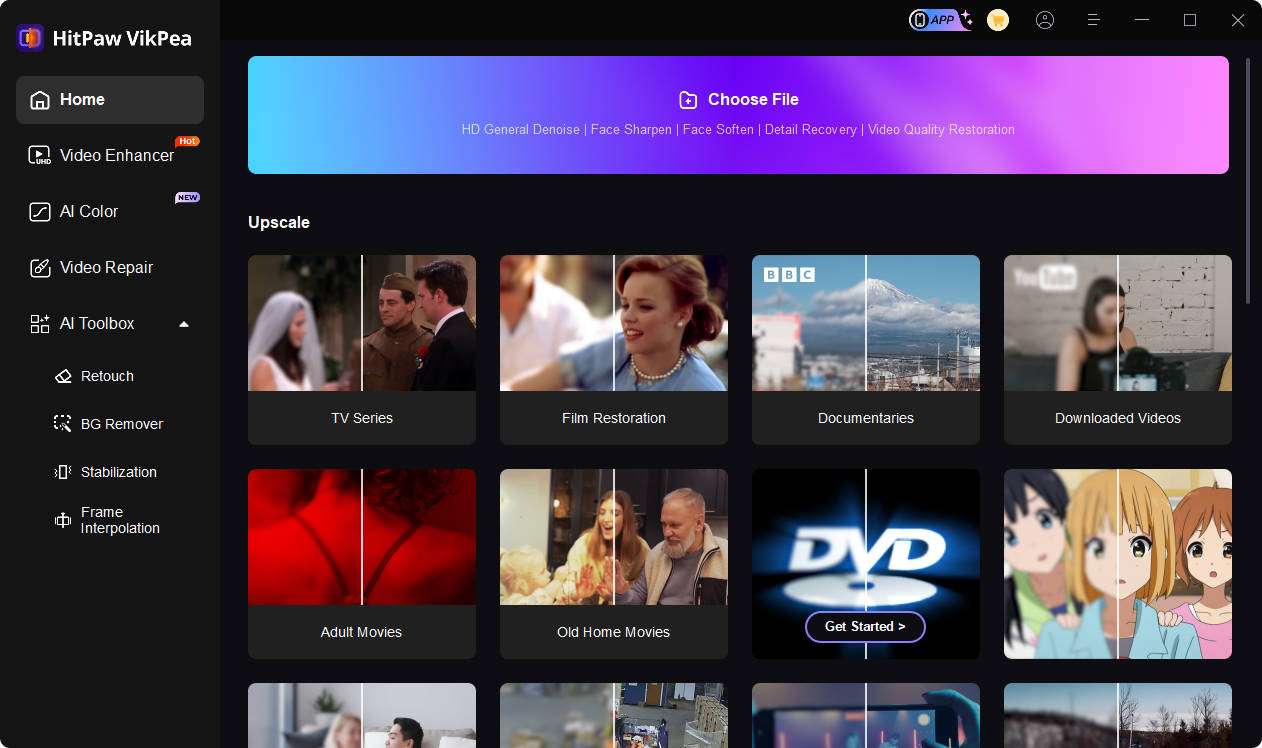
Step 2
After uploading your file, choose the Detail Recovery Model and start conversion.
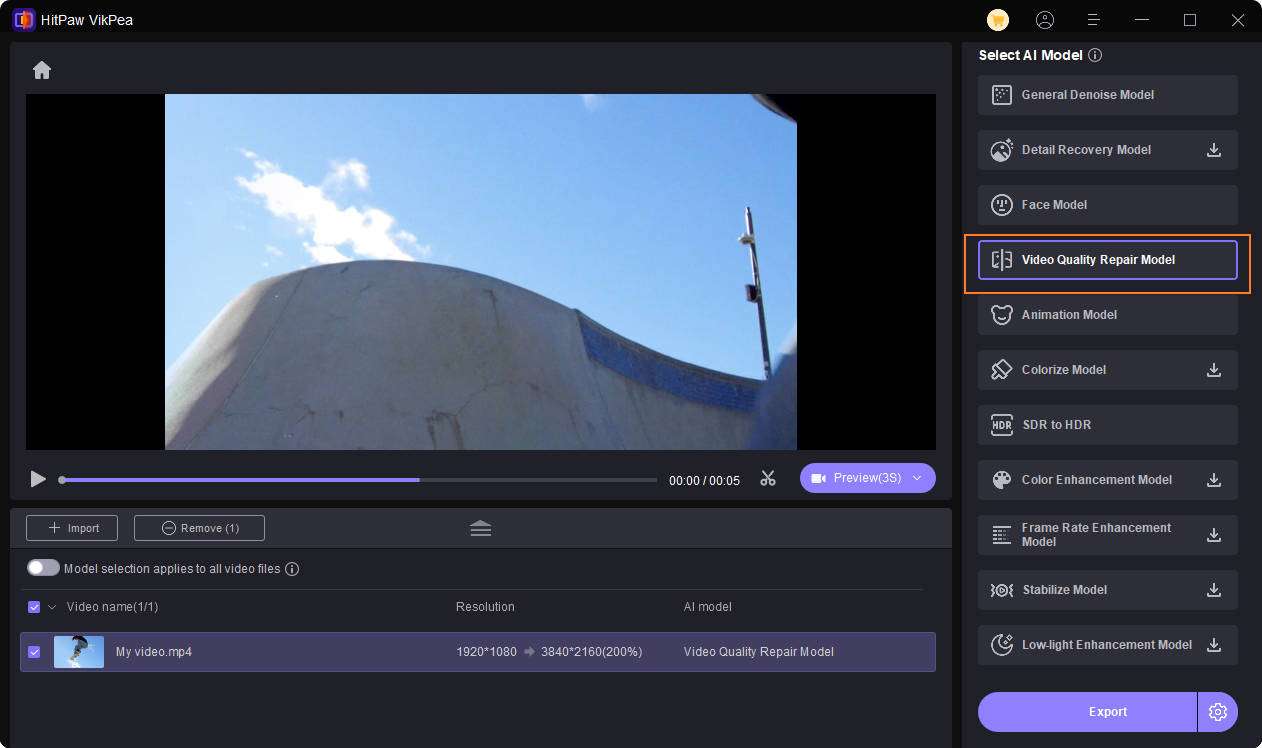
Step 3
Preview the enhanced HDR video before finalizing. If satisfied, click "Export" to save your upgraded file.
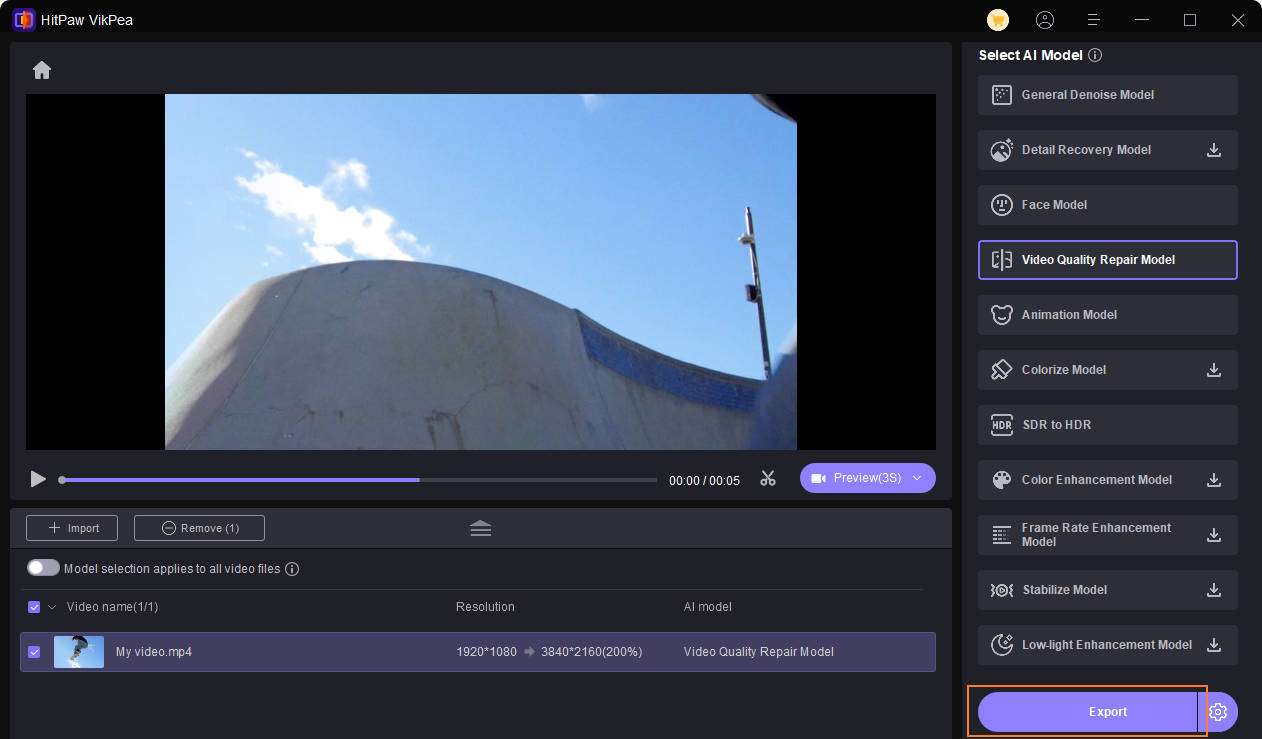
Easy to Use Versatile SDR to HDR Converter
Part 4: Recommended Tools to Convert SDR to HDR Online
If you are someone who does not wish to install any software to convert SDR to HDR, then you might be looking for ways to convert SDR to HDR online. Here are three efficient online tools to get the job done:
1. Clideo
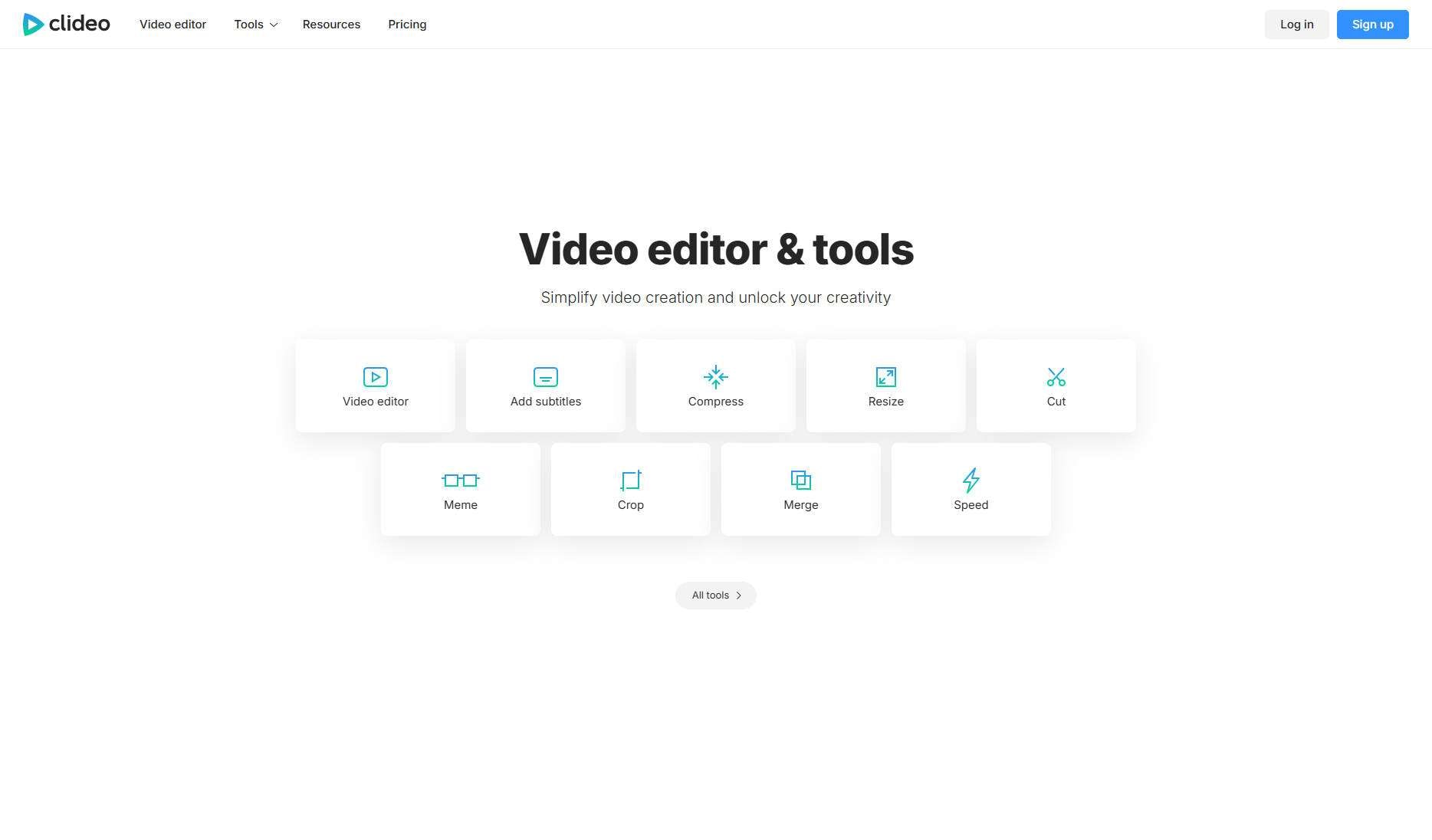
Clideo offers a browser-based video enhancer with a handful of editing tools. Users can adjust brightness, contrast, and saturation. The enhancer can mimic an HDR-like effect for quick social media sharing.
Pros & Cons of Clideo
How to use Clideo Video Enhancer to Convert SDR to HDR?
Step 1
Go to the Clideo Video Enhancer’s official website and upload your SDR video from your system.
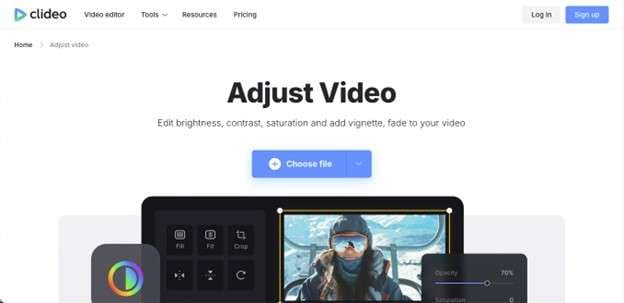
Step 2
Once the video is uploaded, adjust brightness, contrast, and saturation using the sliders.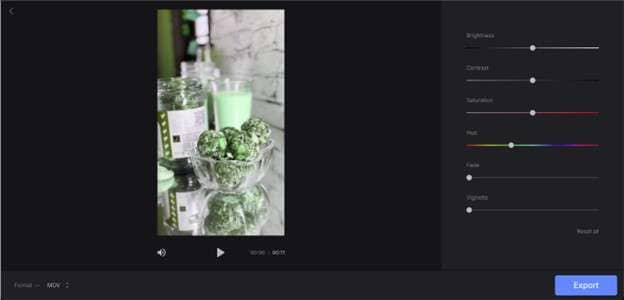
Step 3
Once you are satisfied with the result, you can export to download offline.
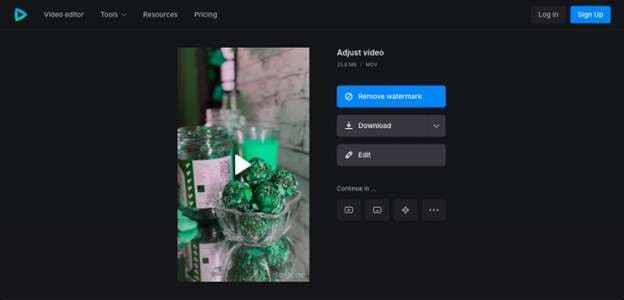
2. Convertio
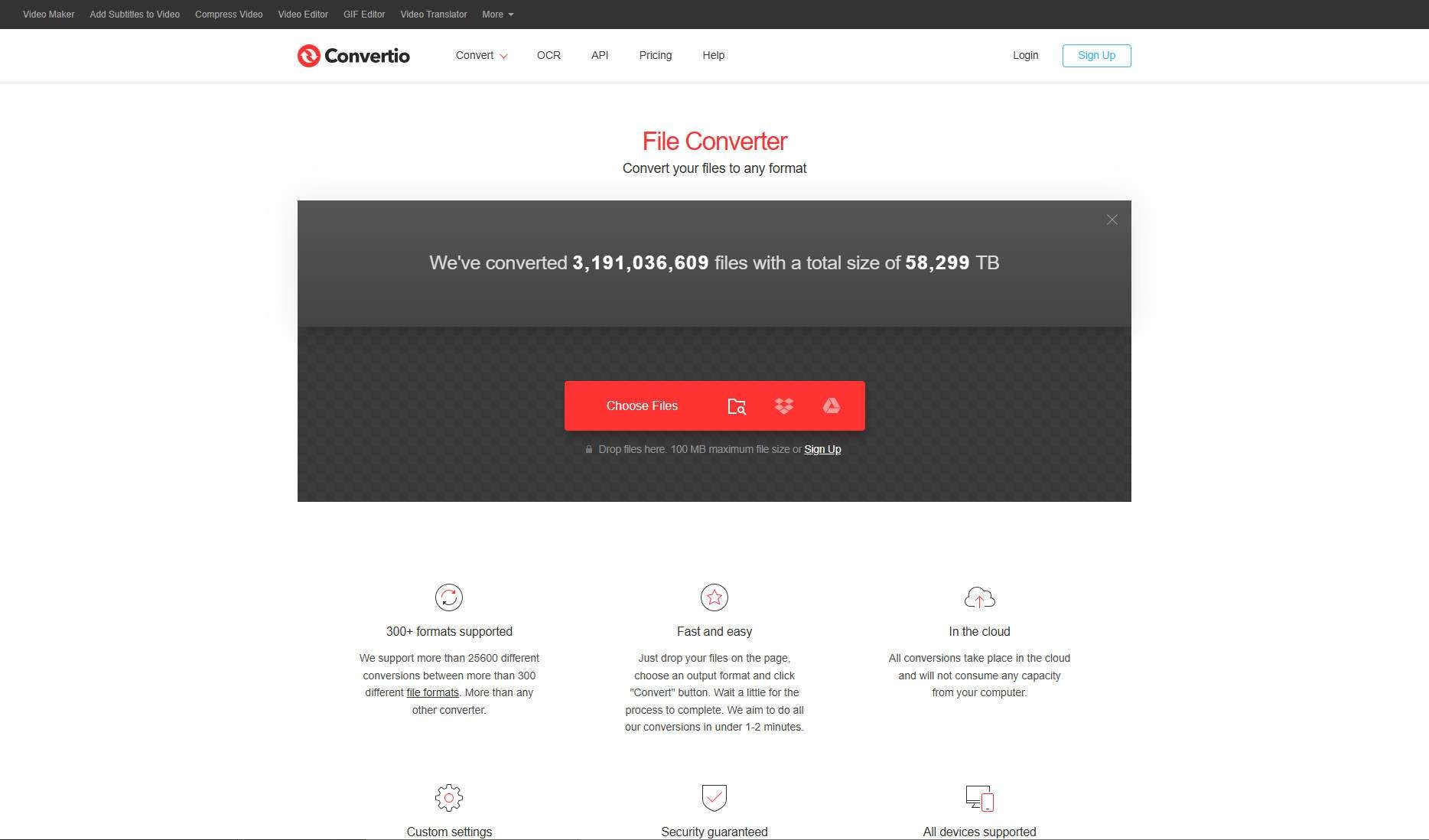
Convertio is yet another web-based tool that offers SDR to HDR conversion. While it doesn’t offer full HDR grading, it’s useful for re-encoding SDR files into HDR-friendly containers.
Pros & Cons of Convertio
How to Use Convertio to Convert SDR to HDR?
Step 1
Head to Convertio’s official website and upload your SDR image file.
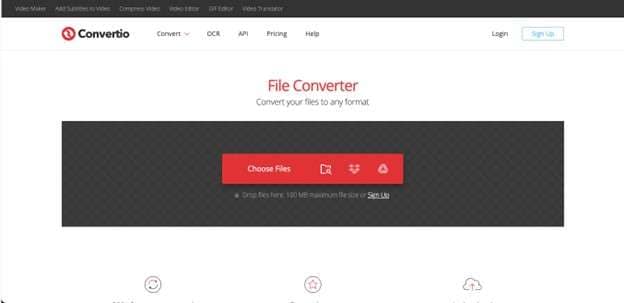
Step 2
From the drop-down menu, choose the output as HDR.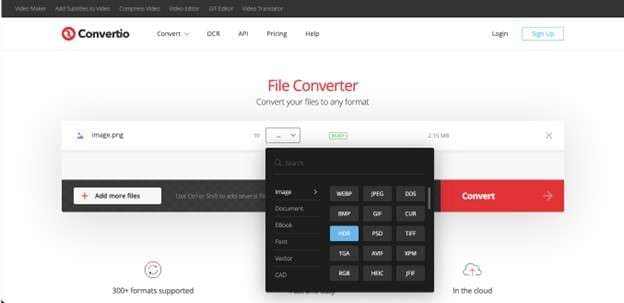
Step 3
Once selected, click “Convert” and download the file once completed.
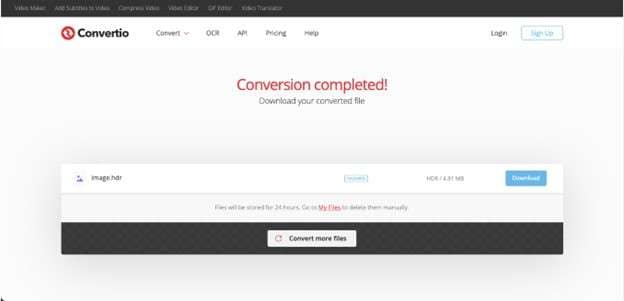
3. HDConvert
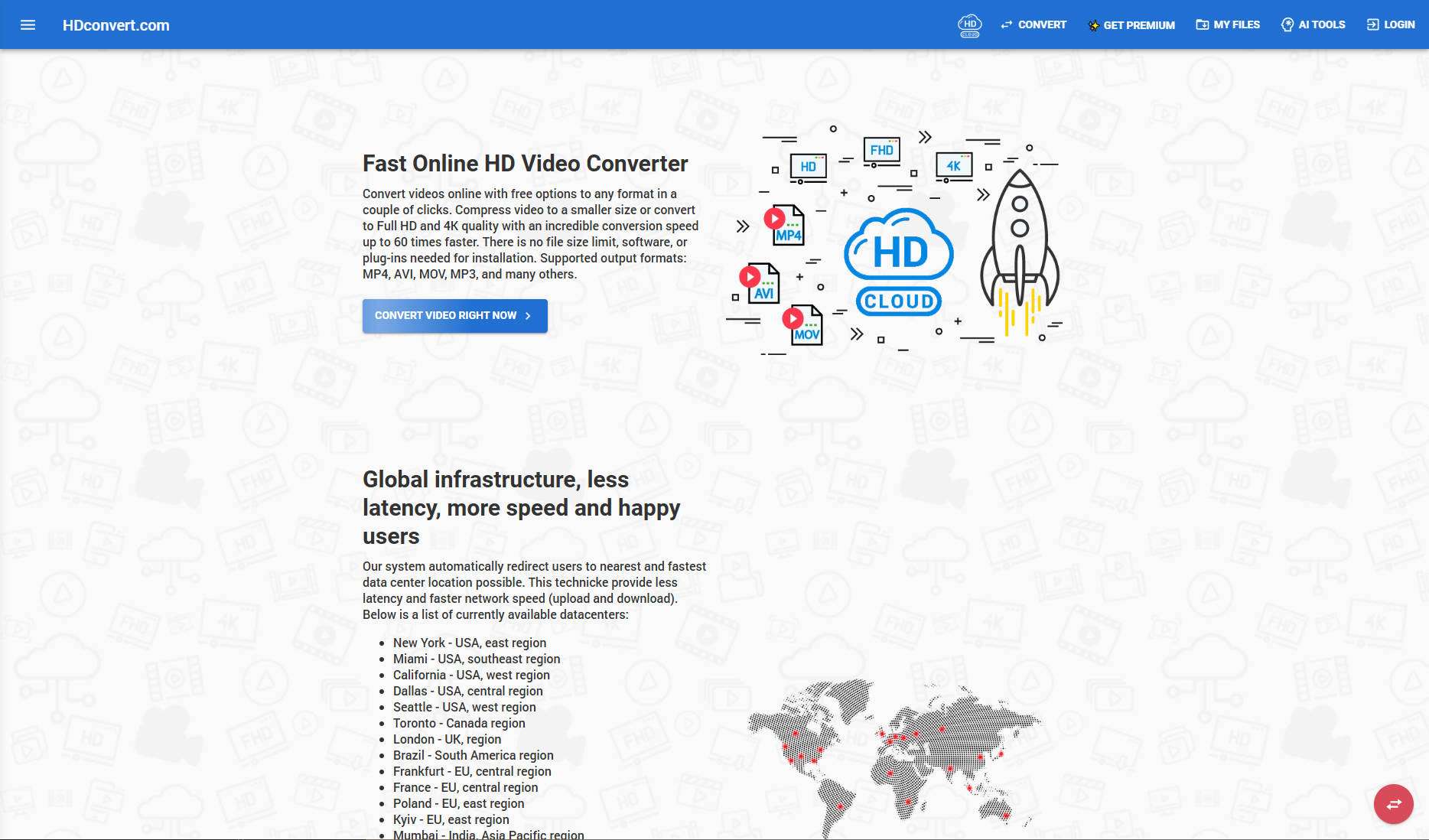
HDConvert is a cloud-based HDR upscaling tool that supports multiple formats and HEVC codings. The tool offers both free and premium options for converting SDR to HDR files.
Pros & Cons of Convertio
How to Use HDConvert for SDR to HDR?
Here are the generic steps that you need to follow in order to convert the SDR file to HDR:
Step 1
Head over to the HDConvert.com website and click on the “Convert Video Right Now” option. This will open a small panel. To add a file, click on “+Add New Files.”

Step 2
From the next window, you can select the quality level. Go ahead with Ultra HD 4K or Full HD 1080p if you have a premium account. Otherwise, you can even choose the HD 720p form here and click on the "Next" button.

Step 3
In the last panel, select the "FREE" version to convert the file from SDR to HDR.
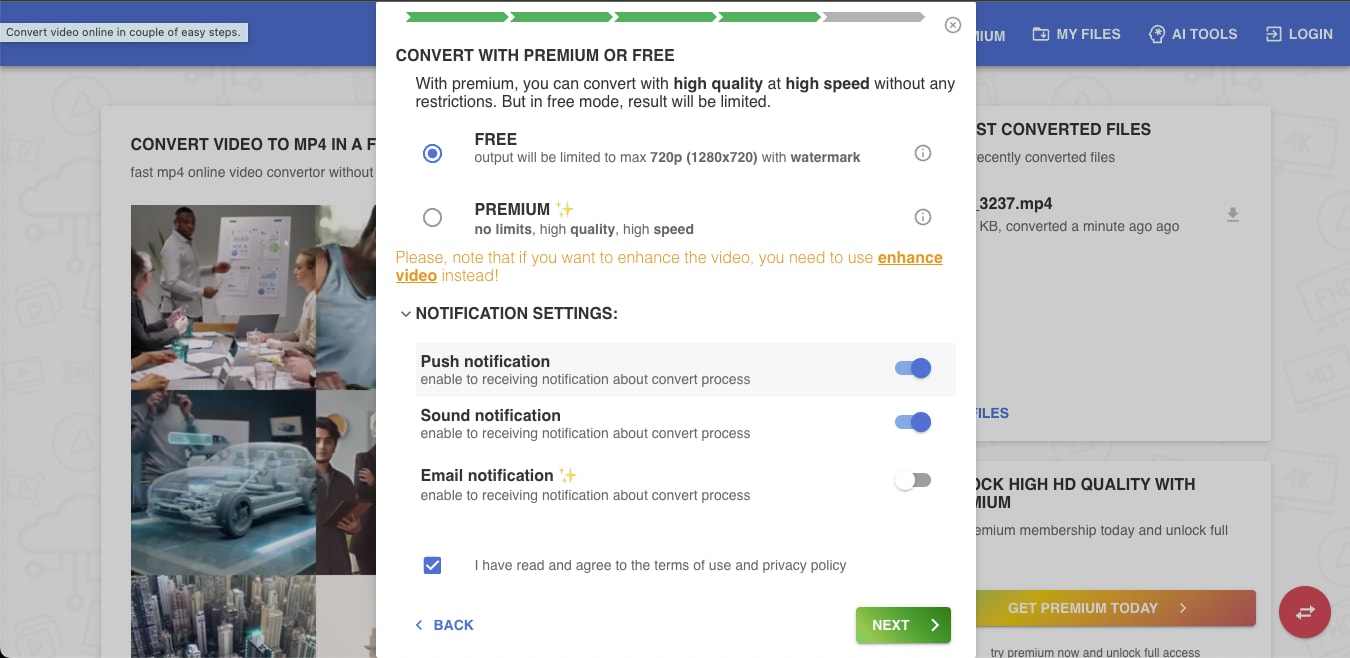
Easy to Use Versatile SDR to HDR Converter
Part 5: Method to Convert SDR to HDR on Mobile (Android or iOS)
With the right mobile application, you can easily convert SDR to HDR. Whether you are editing travel reels, GoPro footage, or cinematic mobile videos, the mobile applications offer powerful HDR upscaling and tone mapping.
1. CapCut(Android/iOS)
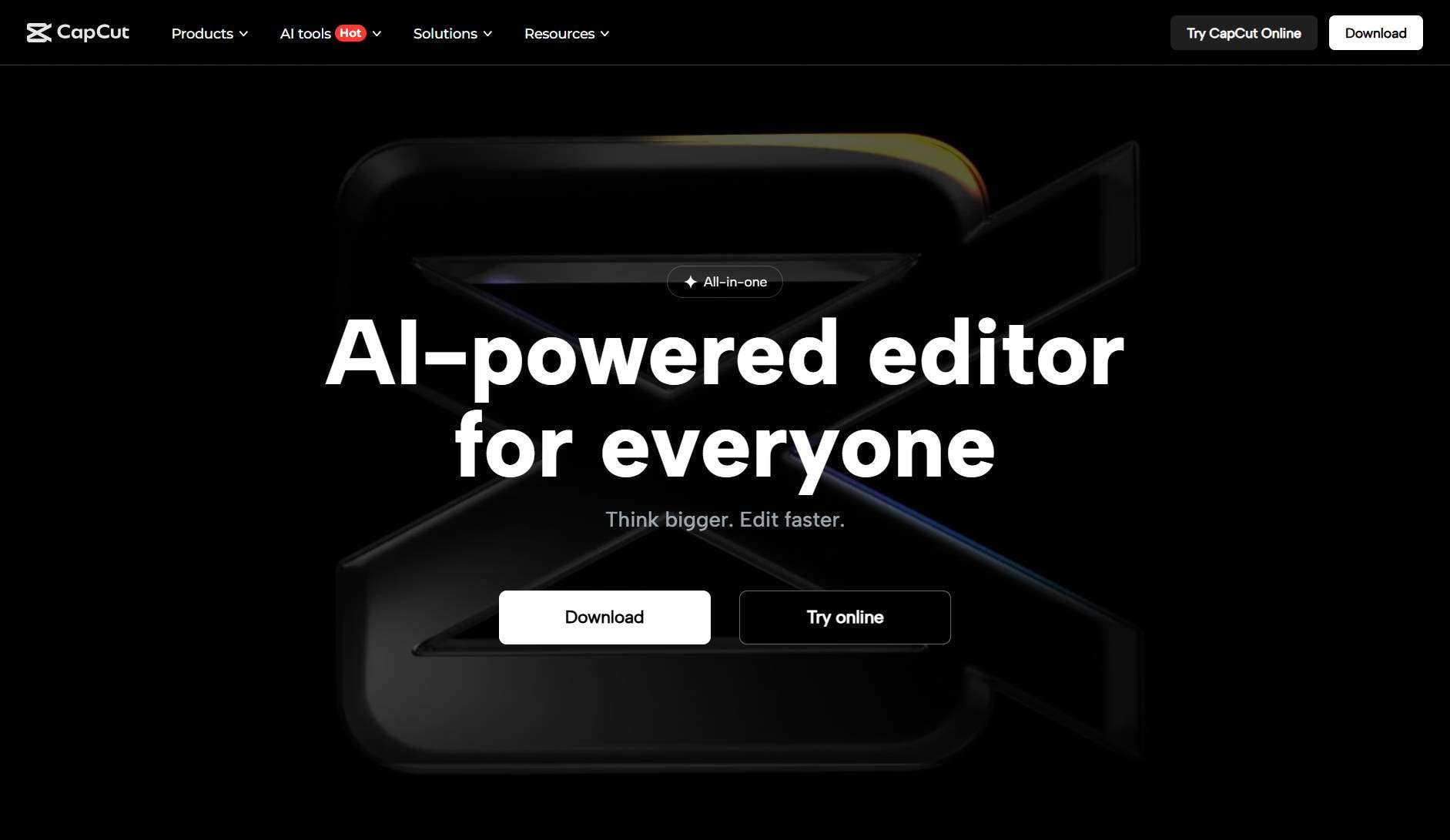
CapCut is a widely used mobile video editor that offers built-in HDR filters and effects. While it doesn’t technically encode HDR10, you can see it convert your files to look like HDR converted.
Pros & Cons of Capcut
How to Use CapCut to Convert SDR to HDR?
Here are generic steps to convert SDR to HDR files in CapCut:
Step 1
Open CapCut on your Android or iOS device to start a new project.Directly import your SDR video

Step 2
In the CapCut tool, go to “Filters” and select Effects. From here, you can apply HDR-style filters.Once satisfied, you can export your converted video in the desired quality.

2. VN Video Editor(Andorid & iOS)
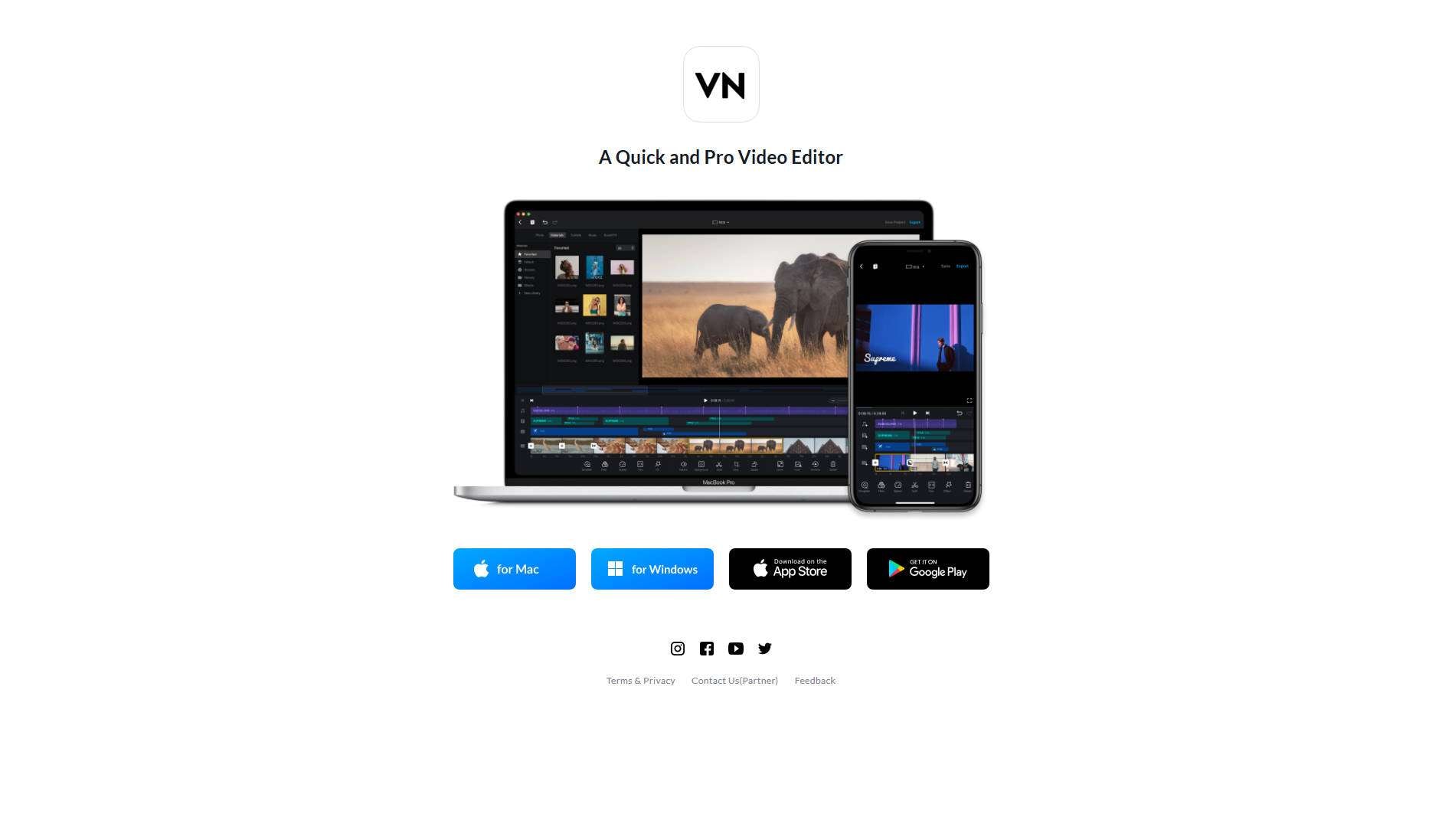
The VN video editor is considered the best alternative to CapCut for all the right reasons. In it, you can simulate HDR by adjusting exposure, saturation, shadows, and highlights.
Pros & Cons of VN Video Editor
How to Use VPN to Convert SDR to HDR?
Here are quick and easy steps for you to follow in order to convert the files from SDR to HDR:
Step 1
Launch the VN video editor on your smartphone to start a new project. Import your SDR video.

Step 2
From the tap filter, you can adjust and tweak exposure, contrast, shadows, and more.
Step 3
Once done, you can export the video in the highest quality available.
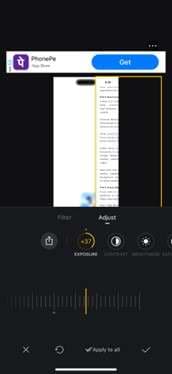
3. InShot (Android & iOS)
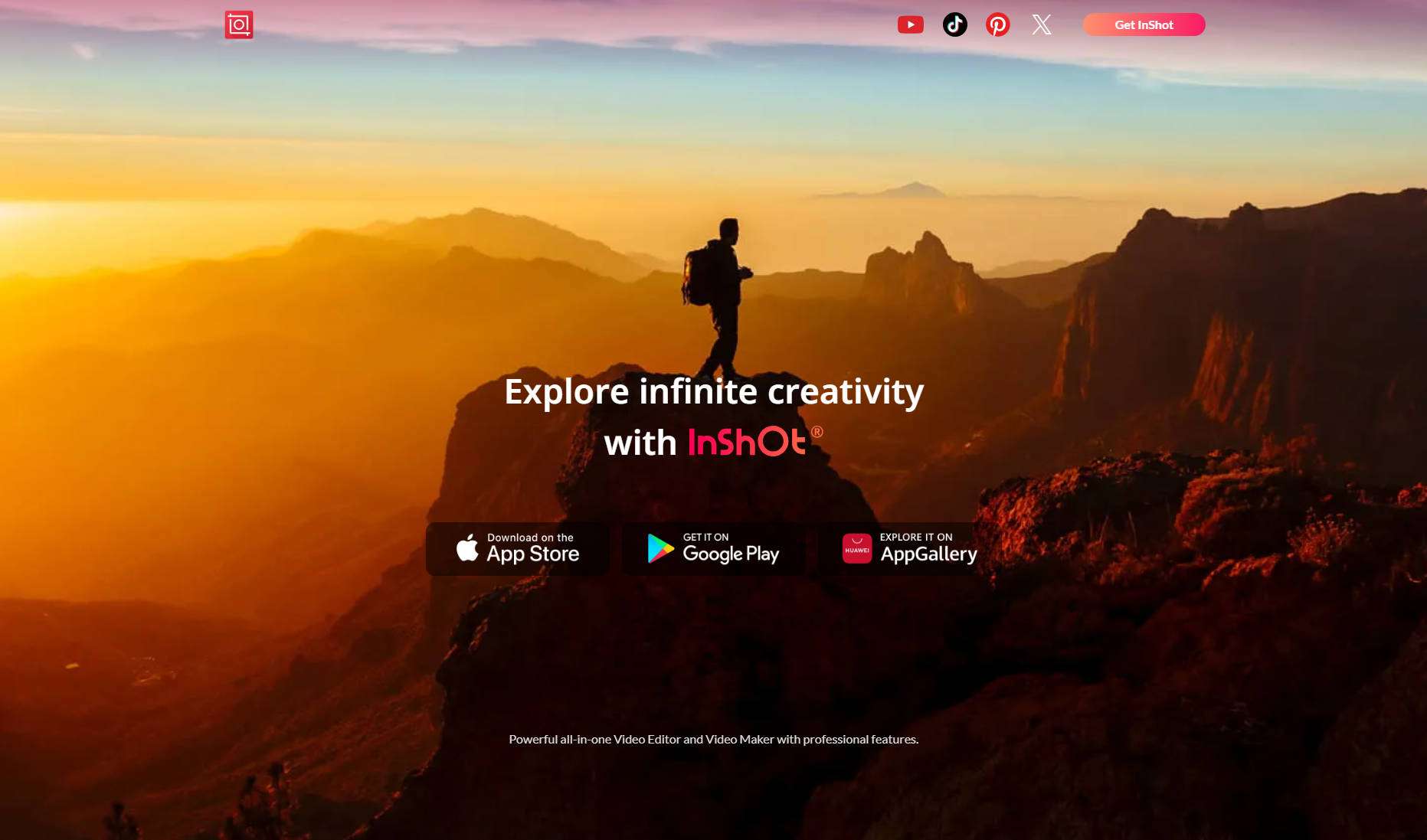
InShot is one of the most used mobile applications for video editing. From color correction to masking, this tool offers different features that can boost your SDR content's HDR-like boost.
Pros & Cons of VN Video Editor
How to Use InShort to Convert SDR to HDR?
Check the simple steps to convert SDR to HDR file format:
Step 1
Launch InShot on your device and create a new video project. Once launched, import your SDR files.

Step 2
Use the “Adjust” panel from the “Filter” to tweak brightness, contrast, and saturation.

Step 3
Once you are satisfied with the file, you can click on sharing icon on the top-right to export it.
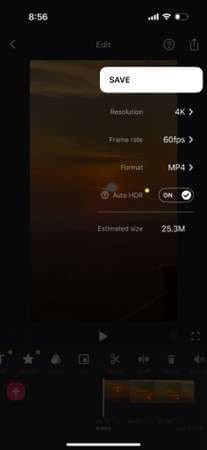
Conclusion
Whether you are a content creator striving for cinematic perfection or simply looking to future-proof your old footage, converting SDR to HDR opens up a new level of visual richness. From powerful desktop editors like DaVinci Resolve and Wondershare UniConverter to quick mobile and online tools that offer HDR-like enhancements, there’s a solution for every skill level and workflow. That being said, if you want a balanced blend of ease, speed, and professional output, you can always download Wondershare UniConverter to see how this powerful tool stands out.
Easy to Use Versatile SDR to HDR Converter
FAQs
-
1. Can SDR be converted to HDR?
SDR can be converted to HDR using tools like WonderShare UniConverter, DaVinci Resolve, or AI-based enhancers. The process involves tone mapping, color grading, and brightness adjustments to mimic or match HDR visuals. -
2. Is HDR really better than SDR?
Yes, HDR offers a wider dynamic range, better contrast, deeper blacks, and richer colors. It delivers a more lifelike and immersive viewing experience, especially on HDR-compatible displays. -
3. Is 4K SDR better than 1080p HDR?
Actually, it depends on the context. 4K SDR has more resolution, but 1080p HDR may offer better visual depth and dynamic range. Ideally, 4K HDR combines the best of both. -
4. Why does HDR look darker than SDR?
HDR may appear darker if the display or app doesn’t process it correctly. It’s designed to show deeper shadows and brighter highlights, but poor tone mapping can throw off balance.


